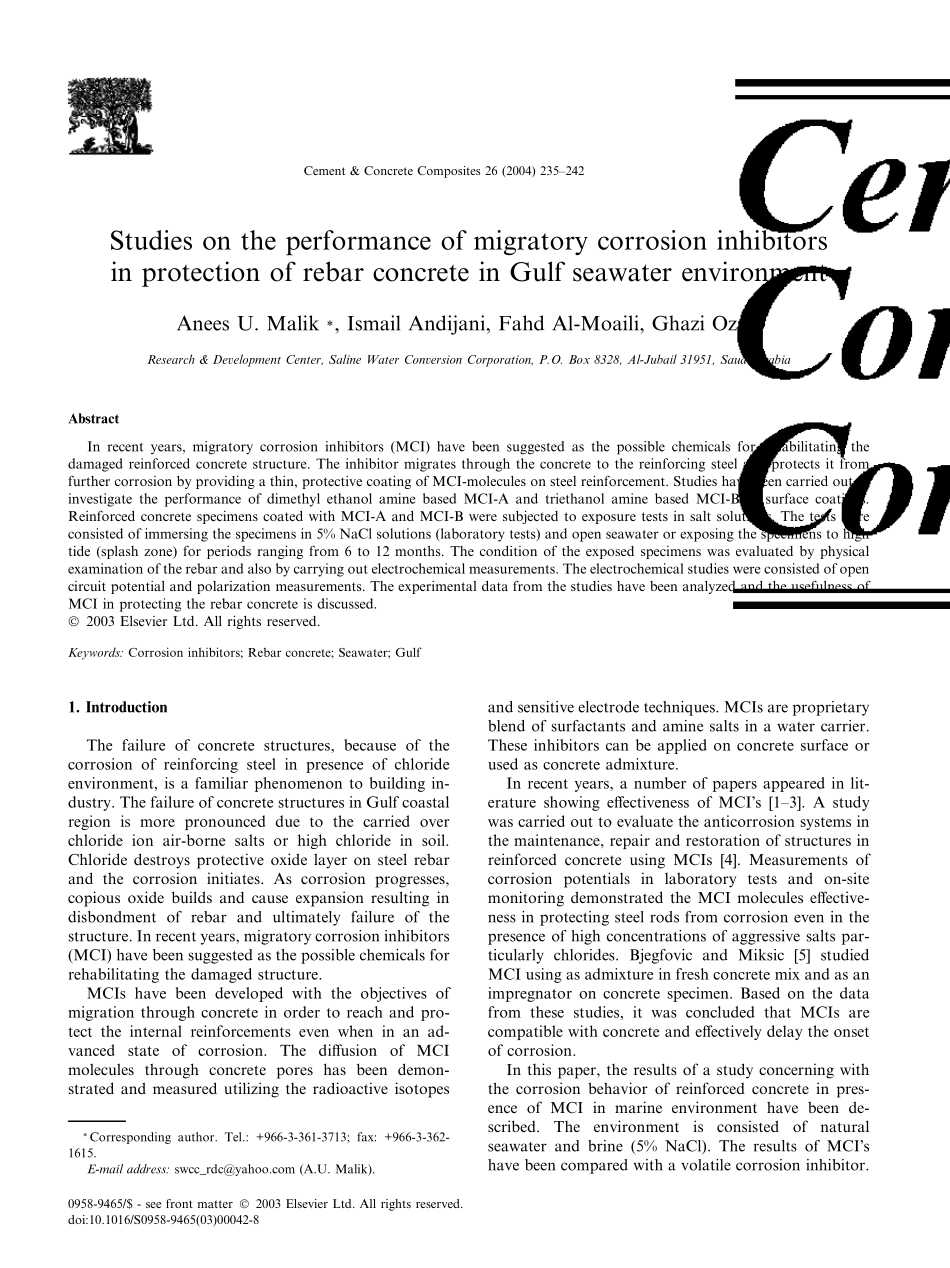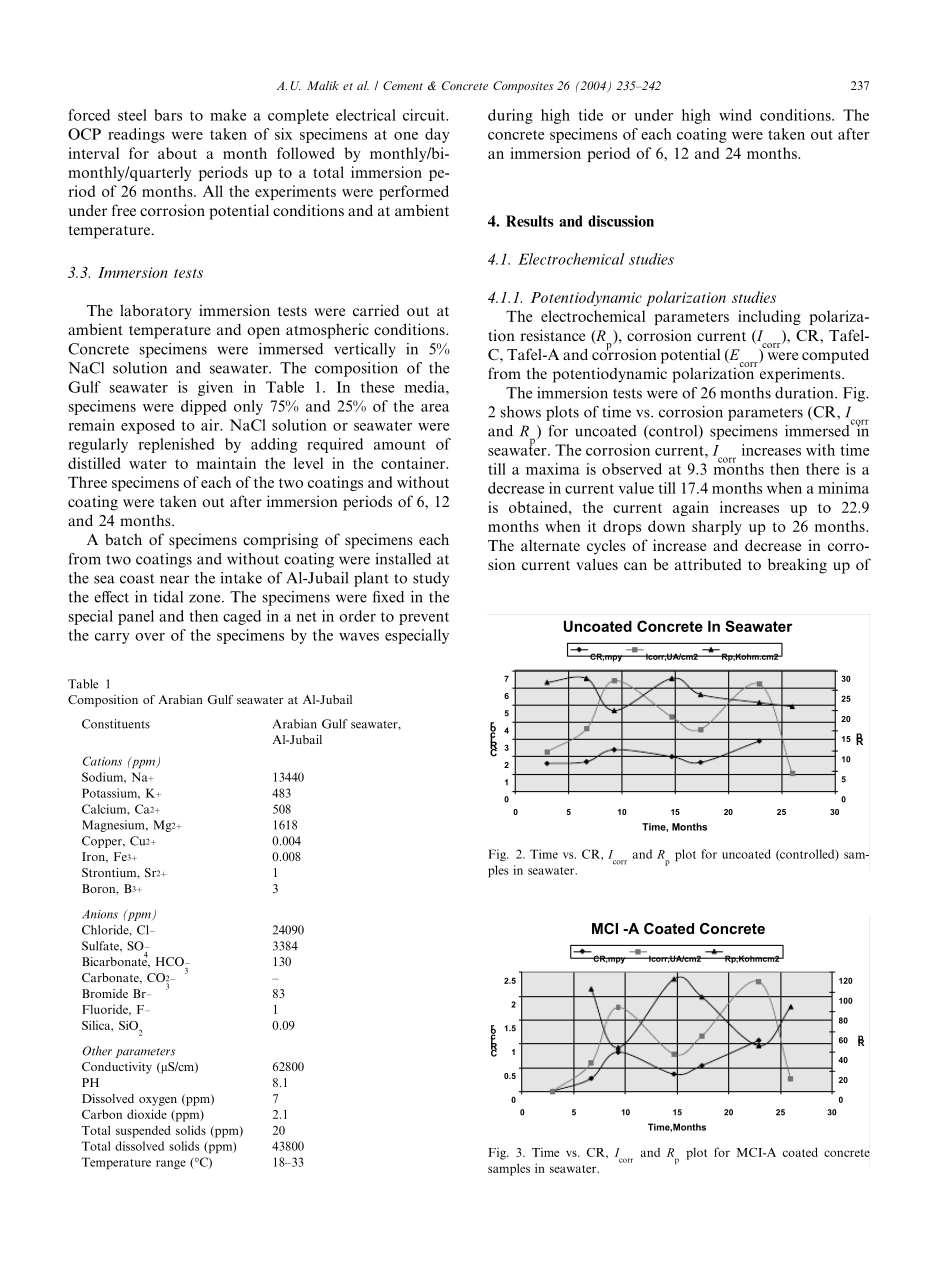Studies on the performance of migratory corrosion inhibitorsin protection of rebar concrete in Gulf seawater environmentAnees U. Malik *, Ismail Andijani, Fahd Al-Moaili, Ghazi OzairResearch & Development Center, Saline Water Conversion Corporation, P.O. Box 8328, Al-Jubail 31951, Saudi ArabiaAbstractIn recent years, migratory corrosion inhibitors (MCI) have been suggested as the possible chemicals for rehabilitating thedamaged reinforced concrete structure. The inhibitor migrates through the concrete to the reinforcing steel and protects it fromfurther corrosion by providing a thin, protective coating of MCI-molecules on steel reinforcement. Studies have been carried out toinvestigate the performance of dimethyl ethanol amine based MCI-A and triethanol amine based MCI-B as surface coatings.Reinforced concrete specimens coated with MCI-A and MCI-B were subjected to exposure tests in salt solutions. The tests wereconsisted of immersing the specimens in 5% NaCl solutions (laboratory tests) and open seawater or exposing the specimens to hightide (splash zone) for periods ranging from 6 to 12 months. The condition of the exposed specimens was evaluated by physicalexamination of the rebar and also by carrying out electrochemical measurements. The electrochemical studies were consisted of opencircuit potential and polarization measurements. The experimental data from the studies have been analyzed and the usefulness ofMCI in protecting the rebar concrete is discussed.Ó 2003 Elsevier Ltd. All rights reserved.Keywords: Corrosion inhibitors; Rebar concrete; Seawater; Gulf1. Introdu ctionThe failure of concrete structures, because of thecorrosion of reinforcing steel in presence of chlorideenvironment, is a familiar phenomenon to building...


